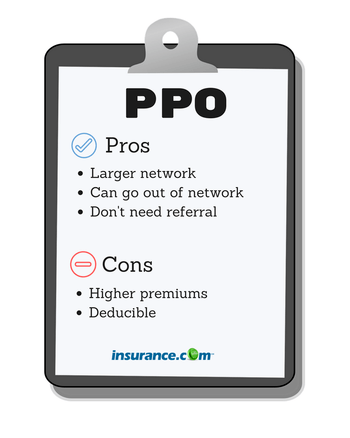A life insurance policy is a contract with an insurer. In exchange for premium payments, the insurer supplies a lump-sum payment, called a death benefit, to recipients upon the insured's death. Usually, life insurance is selected based upon the requirements and goals of the owner. Term life insurance usually provides defense for a set period of time, while permanent insurance coverage, such as entire and universal life, provides life time protection.
1 There are many ranges of life insurance. A few of the more common types are talked about listed below. Term life insurance coverage is designed to provide financial protection for a particular time period, such as 10 or twenty years. With standard term insurance, the superior payment quantity remains the very same for the protection period you select.
Term life insurance is generally less costly than irreversible life insurance. Term life insurance coverage proceeds can be used to replace lost prospective earnings during working years. This can supply a safeguard for your beneficiaries and can also assist ensure the family's monetary goals will still be metgoals like settling a home mortgage, keeping a company running, and spending for college.
Universal life insurance is a kind of long-term life insurance created to offer life time coverage. Unlike whole life insurance coverage, universal life insurance policies are versatile and may allow you to raise or reduce your premium payment or coverage amounts throughout your lifetime. In addition, due to its lifetime coverage, universal life usually has higher premium payments than term.
What Is Life Insurance - Truths
Another common use is long term earnings replacement, where the requirement extends beyond working years. Some universal life insurance product designs focus on supplying both survivor benefit coverage and structure cash value while others concentrate on offering guaranteed survivor benefit coverage. Whole life insurance is a type of long-term life insurance coverage created to provide life time protection.
Policy premium payments are usually repaired, and, unlike term, whole life has a money value, which functions as a cost savings part and might collect tax-deferred gradually. Entire life can be utilized as an estate planning tool to help preserve the wealth you plan to move to your recipients. Earnings replacement throughout working years Wealth transfer, income defense and some designs focus on tax-deferred wealth build-up Wealth transfer, preservation and, tax-deferred wealth build-up Designed for a particular period (usually a number of years) Flexible; typically, for a lifetime For a lifetime Normally cheaper than permanent Usually more pricey than term Normally more expensive than term Generally fixed Flexible Generally fixed Yes, normally income tax-free Yes, generally income tax-free Yes, usually income tax-free No No2 No No Yes Yes Yes, Fidelity Term Life Insurance Coverage3 Yes, Universal Life Insurance, mainly focused on survivor benefit security No, traditional Whole Life Insurance coverage is not presently provided Insurance providers utilize rate classes, or risk-related classifications, to identify your premium payments; these categories do not, however, impact the length or quantity of coverage.
Tobacco use, for example, would increase risk and, for that reason trigger your premium payment to be greater than that of somebody who doesn't use tobacco.
Life insurance coverage is a contract between an insurer and a policyholder in which the insurer assurances payment of a death advantage to named beneficiaries when the insured passes away. The insurer assures a death advantage in exchange for premiums paid by the insurance policy holder. Life insurance is a legally binding contract.
Some Known Details About Whose Life Is Covered On A Life Insurance Policy That Contains A Payor Benefit Clause?
For a life insurance coverage policy to remain in force, the insurance policy holder should pay a single premium in advance or pay routine premiums in time. When the insured passes away, the policy's named beneficiaries will get the policy's stated value, or death advantage. Term life insurance coverage policies expire after a certain number of years.
A life insurance coverage policy is only as excellent as the financial strength of the business that releases it. State warranty funds may pay claims if the provider can't. Life insurance provides financial backing to making it through dependents or other recipients after the death of an insured (how much is a unit of colonial penn life insurance?). Here are some examples of people who may require life insurance: If a moms and dad passes away, the loss of his or her earnings or caregiving abilities might produce a financial challenge.

For children who need long-lasting care and will never be self-sufficient, life insurance coverage can make sure their requirements will be satisfied after their parents die. The survivor benefit can be used to fund a unique requirements trust that a fiduciary will manage for the adult child's benefit. how life insurance works. Married or not, if the death of one adult would suggest that the other might no longer manage loan payments, upkeep, and taxes on the home, life insurance coverage might be a good concept.
Numerous adult kids sacrifice by requiring time off work to care for an elderly moms and dad who needs aid. This help might likewise include direct monetary support. Life insurance coverage can help reimburse the adult child's costs when the parent dies. Young adults without dependents rarely require life insurance, however if a moms and dad will be on the hook for a child's financial obligation after his or her death, the child may desire to carry adequate life insurance to settle that debt.
The smart Trick of What Is Permanent Life Insurance That Nobody is Talking About
A 20-something adult might purchase a policy even without having dependents if there is an expectation to have them in the future. Life insurance coverage can supply funds to cover the taxes and keep the full value of the estate undamaged.' A small life insurance coverage policy can provide funds to honor a loved one's passing.
Instead of choosing between a pension payment that get more info offers a spousal benefit and one that doesn't, pensioners can select to accept their full pension and use a few of the money westlake financial utah to buy life insurance to benefit their partner. This technique is called pension maximization. A life insurance policy can has 2 primary elements - a survivor benefit and a premium.
The death benefit or face worth is the amount of cash the insurance provider guarantees to the beneficiaries recognized in the policy when the insured passes away - how life insurance works. The insured may be a moms and dad, and the recipients may be their children, for example. The guaranteed will pick the desired survivor benefit quantity based upon the beneficiaries' projected future requirements.
Premiums are the cash the insurance policy holder spends for insurance. The insurer must pay the death benefit when the insured dies if the policyholder pays the premiums as needed, and premiums are figured out in part by how most likely it is that the insurance provider will have to pay the policy's survivor benefit based upon the insured's life span.
What Does How Much Is Term Life Insurance Do?
Part of the premium likewise goes toward the insurer's operating costs. Premiums are higher on policies with bigger death advantages, individuals who are higher threat, and long-term policies that accumulate money worth. The money worth of irreversible life insurance serves 2 functions. It is a savings account that the insurance policy holder can utilize throughout the life of the insured; the cash collects on a tax-deferred basis.

For instance, the insurance policy holder may take out a loan against the policy's cash value and need to pay interest on the loan principal. The policyholder can also use the money worth to pay premiums or purchase additional insurance. The money worth is a living benefit that remains with the insurance provider when the insured dies.